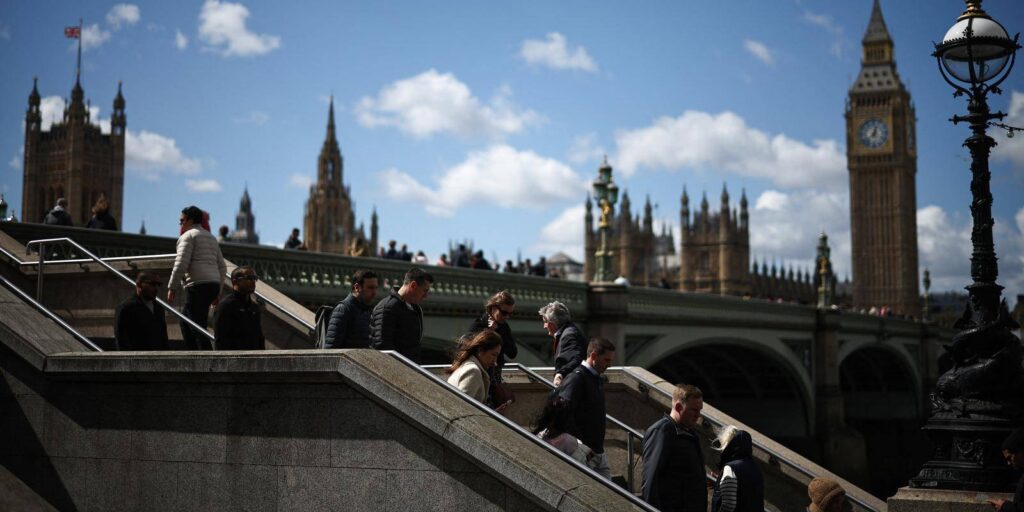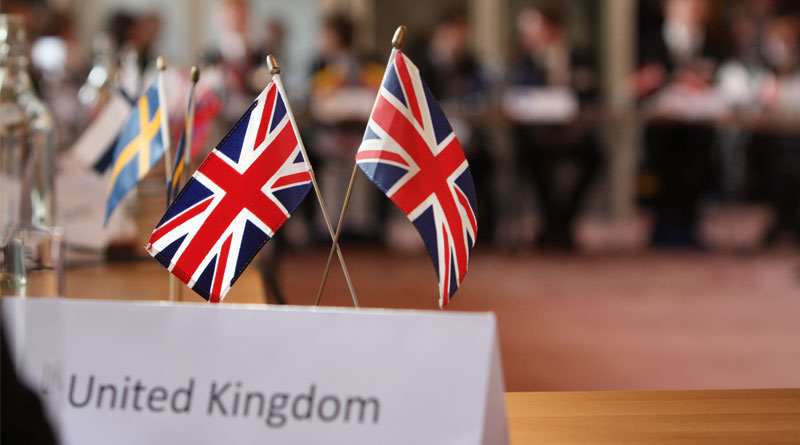
With a general election imminent, it is already clear that the next UK government will take office in an immensely challenging environment for foreign policy. From wars in Gaza and Ukraine to concerns about climate change, China’s assertive global agenda and the durability of America’s commitment to European security, the next UK government will face many pressing international problems and have limited resources with which to tackle them. This paper examines how the next government – regardless of which party wins the election – could use its foreign policy assets to best effect in the context of fiscal and other capacity pressures.
‘Realistic ambition’ should be the guiding principle, with the UK recognizing its limits and constraints but remaining actively engaged and agile in its foreign policy. The paper outlines, in particular, three long-term priorities for foreign policy: navigating unpredictable great power dynamics that are complicated by rising Sino-US tensions; improving the UK’s relations with the EU, in part to offset the risk of reduced US engagement in Europe, and in part to fill post-Brexit policy gaps; and reinvigorating the UK’s role in global governance and international development, an area of historical strength.
Three foreign policy priorities for the next UK government
- Summary
- 01 Introduction – the need for realistic ambition
- 02 Navigating unpredictable great power dynamics
- 03 Improving the UK’s relations with Europe
- 04 Strengthening a role in global governance and international development
- 05 Affording a global role
- 06 Conclusion
- About the authors
- Acknowledgments

Summary
- Whichever party wins the UK general election, the next government will have tough choices to make on foreign policy. There will be little funding for international relations, given low forecast economic growth, high debt interest payments and severe pressure on public services. At the same time, the UK faces difficult global challenges: an assertive China; tension between China and the US; questions about the US’s commitment to European security; the war in Ukraine and the threat from Russia; and an unfolding Middle East crisis. Many other problems persist, including climate change, risks from new technologies, more fragmented global trade, and weaknesses in arms control and pandemic preparedness.
- This research paper, rather than issue prescriptions in each of these areas, sets out three long-term priorities for UK foreign policy. The first is navigating unpredictable great power dynamics, as rising US–China friction complicates the UK’s relations with both countries and its diplomacy around the world. The second is improving the UK’s relations with Europe: to deal with the prospect of a US retreat from internationalism; to defend against Russia and other shared risks; and to address policy gaps created by Brexit. The third is strengthening the UK’s role in global governance and international development. This means building partnerships with a broad swathe of countries – mid-sized powers, emerging economies and many countries in what is sometimes called the Global South – to advance British interests and contribute the UK’s expertise and reputation to the solution of international problems.
- We refer to this approach as ‘realistic ambition’: the UK should be practical about its resources and limits, but it should not retreat from international affairs, which are critical to its own interests, values and prosperity, nor downplay its obvious strengths. The UK has played a decisive role in European security, and has significant defence, diplomatic, cultural and scientific assets to offer. The proliferation of problems overseas, and their implications for the UK’s fortunes, are all the more reason for an agile, active foreign policy.
- On the first priority, the next UK government will have to work with a US that is still a crucial ally but that is reluctant to play as prominent a role in European security as in the past. The ‘special relationship’ will endure, but the US is becoming more focused on other parts of the world, and susceptible to partisan divisions that render it a less reliable partner. This will be immediately apparent should Donald Trump win the 2024 US presidential election, but the trend is likely to continue even if he does not. Both major US political parties are becoming more protectionist than in the past. Rather than pursue a comprehensive free-trade deal that is unlikely to materialize, the UK would do better to focus on sectoral agreements and continuing partnerships on military and critical technologies. It also needs to hedge against US unpredictability by deepening its relationships with Europe and middle-sized powers around the world.
- At the same time, the next government will need to manage a more confrontational China. Engagement with Beijing will remain essential on trade, and desirable on global problems such as climate change, technology governance and developing-country debt. But the next government must balance trading with China against protecting the UK – a balance that has been hard to achieve in the past. The UK will need to strengthen its capacity to manage cyberattacks, interference and economic coercion. It should recruit or train more China specialists and develop more coherent decision-making on China across government departments. It should also be realistic about its broader Indo-Pacific strategy. Earlier ambitions for an ‘Indo-Pacific tilt’ have been moderated, acknowledging constraints on UK military capacity. But the UK could still usefully focus on enhancing trade, security and diplomatic links with Australia, India, Japan and South Korea, and on delivering agreed defence projects such as the AUKUS initiative with Australia and the US.
- On the second priority, improving the relationship with the European Union, the next UK government starts with clear opportunities. The Conservative government’s vigorous support of Ukraine, maintained through three prime ministers since Russia’s 2022 invasion and echoed by the Labor opposition, has given the UK a prominent voice in the defense of Europe. This support has strengthened the UK’s conversation with EU countries about common risks, in turn opening up the chance for more constructive discussion of post-Brexit relations. The UK has a few options to improve the existing Trade and Cooperation Agreement (TCA), up for review in 2026, although the economic and strategic benefits would be modest. Greater cooperation with the EU should also be feasible on energy security and emissions trading schemes. But above all, the UK could usefully reframe its relationship with the EU more in terms of geopolitical and security cooperation.
- The UK should still seek to play an important role on global governance – bolstering international order in unstable times. This is the third priority. Although the UK is a mid-sized power, it has expertise and reputation in diplomacy, defence and security. Its alliances and membership of multilateral institutions provide foreign policy leverage. Given these strengths, the UK should play a consistent role on global issues where it has credibility – particularly on climate change, international development, arms control and technology governance. More broadly, it should advance principles of international law and order. The UK’s international reputation has often been associated with such principles, reflecting the country’s role in shaping the order and institutions of the world since 1945. But with a more vocal constituency worldwide challenging the perceived double standards of Western democracies, the UK will find this area of influence out of reach unless it brings its own behaviour, at home and abroad, more in line with the values it advocates.
- This active contribution to global governance could bring added diplomatic benefits. The next UK government will confront a world with a more assertive Global South – including some countries inclined to side with China or Russia in challenging the international order – and a more influential and activist range of other mid-sized powers. Building shared goals, including around the meaningful reform of multilateral and international financial institutions, will be important for the UK to advance its relationships and alliances worldwide.
- Paying for this agenda will demand hard decisions. The present government’s recent announcement that it intends to meet its target of spending 2.5 per cent of GDP on defence by 2030 is welcome. But there is a risk that this commitment – coming before an imminent election, and outside of a budget or other fiscal event that explains the trade-offs with other pressing concerns – defers difficult choices about how to fund spending and what to prioritize.1 Given the risks the UK faces, particularly from Russian aggression in Europe, and the existing gaps in UK defence budgets, a minimum target of 3 per cent of GDP spent on defence would be better. At the very least, the UK should maintain an army that can credibly meet operational commitments to NATO in the event of a crisis. It must ensure sufficient funding for AUKUS, and for the Global Combat Air Programme with Italy and Japan. Even if defence spending in other areas is constrained, the government must address problems of wasteful procurement and inadequate recruitment. It should prioritize defence and strategic investments that strengthen the UK’s science and research base and that promote development of critical technologies.
- To support the UK’s global role, the next government will need to spend a consistent amount on international development. It will find it easiest to restore the UK’s previously high reputation in this field if it returns official development assistance to 0.7 per cent of gross national income. But at a minimum, the UK should introduce more predictability into its development spending. It should address a lack of clarity about the purpose of its aid spending, as much of the foreign aid budget currently goes towards housing refugees and asylum seekers domestically. It should also consider more predictable and proportionate spending on diplomatic capacity – which has historically been neglected while defence and development spending targets take up significant focus in government. Both the UK’s exit from the EU and increasing global instability require more investment in diplomatic capacity, not less.
- This research paper has been written with a UK general election in mind. It draws on over 40 interviews and the discussions at 12 roundtables, and on the input of Chatham House research programmes, associate fellows, internal and external advisers, and the UK in the World Programme’s advisory council.2 The next UK government, of whatever stripe, will face many challenges and few easy answers. This paper recommends priorities and offers options to those deciding what the UK should do.
